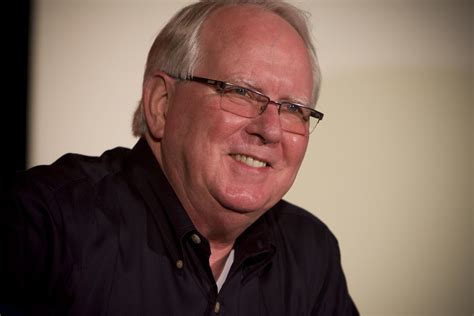A Quote by Maggie O'Farrell
I don't want to be influenced as to what I write in the next book, to hear those voices in my head when I'm writing. The idea of second-guessing your reader is dangerous, trying to please some notional reader looking over your shoulder, instead of just yourself.
Related Quotes
Write what you want to read. So many people think they need to write a particular kind of book, or imitate a successful style, in order to be published. I've known people who felt they had to model their book on existing blockbusters, or write in a genre that's supposed to be "hot right now" in order to get agents and publishers interested. But if you're writing in a genre you don't like, or modeling yourself on a book you don't respect, it'll show through. You're your first, most important reader, so write the book that reader really wants to read.
As soon as I start to write I'm very aware, I'm trying to be aware that a reader just might well pick up this poem, a stranger. So when I'm writing - and I think that this is important for all writers - I'm trying to be a writer and a reader back and forth. I write two lines or three lines. I will immediately stop and turn into a reader instead of a writer, and I'll read those lines as if I had never seen them before and as if I had never written them.
If only you’d remember before ever you sit down to write that you’ve been a reader long before you were ever a writer. You simply fix that fact in your mind, then sit very still and ask yourself, as a reader, what piece of writing in all the world Buddy Glass would most want to read if he had his heart’s choice. The next step is terrible, but so simple I can hardly believe it as I write it. You just sit down shamelessly and write the thing yourself. I won’t even underline that. It’s too important to be underlined.
Loving your subject, you will write about it with the spontaneity and enthusiasm that will transmit itself to your reader. Loving your reader, you will respect him and want to please him. You will not write down to him. You will take infinite pains with your work. You will write well. And if you write well, you will get published.
That underscored this idea that when we're reading a book or writing a book, you're in an act of co-creation. The reader and the writer are both trying to dress up and present their best selves and then there's that moment, when suddenly, as a reader, you're not exactly you anymore, and likewise, as a writer, you're not really you.
If you are reading in order to become a better reader, you cannot read just any book or article. You will not improve as a reader if all you read are books that are well within your capacity. You must tackle books that are beyond you, or, as we have said, books that are over your head. Only books of that sort will make you stretch your mind. And unless you stretch, you will not learn.
You've got to be a good reader. So whatever genre that you're interested in, read a lot of books about it and it's better than any kind of writing class you'll ever take. You will absorb techniques and then in a lot of cases you can just start writing using the style of the book or the author that you admire and then your own style will emerge out of that. Be a diligent reader and then try to write seriously, professionally and approach everything in writing in a professional way.







































